Turkish man killed by taxi driving into group of protesters
Turkish Prime Minister has accused the anti govt protestors of walking arm-in-arm with terrorism.
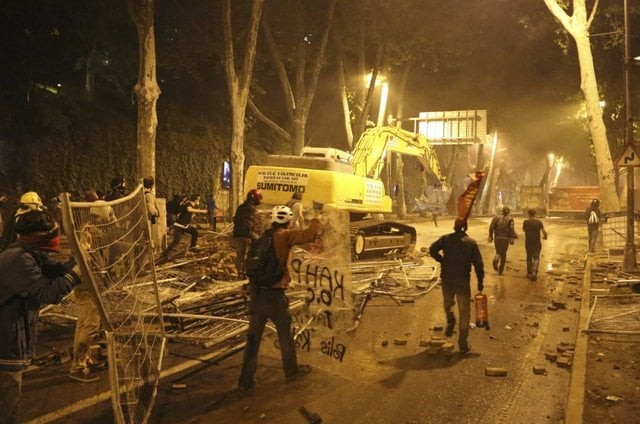
Anti-government protesters stand behind barricades during a excavator clash with riot police as they try to march to the office of Turkey's Prime Minister Tayyip Erdogan in Istanbul early June 3, 2013. PHOTO: REUTERS
The protester was named as Mehmet Ayvalitas, and TBB board member Huseyin Demirduzen said four other people were also injured, one of them seriously.
Turkish premier brands protesters extremists
Turkish Prime Minister TayyipErdogan accused anti-government protesters on Monday of walking "arm-in-arm with terrorism", remarks that could further inflame public anger after three days of some of the most violent riots in decades.
Hundreds of police and protesters have been injured since Friday in the riots, which began with a demonstration to halt construction in a park in an Istanbul square and grew into mass protests against what opponents call Erdogan's authoritarianism.
He has dismissed the protests as the work of secularist enemies who never reconciled to the mandate of his Islamist AKP party, which has won three straight elections, overseen an economic boom and raised Turkey's profile in the region.
"This is a protest organised by extremist elements," Erdogan said at a news conference before departing on a trip to North Africa. "We will not give away anything to those who live arm in arm with terrorism."
The unrest has delivered a blow to Turkish financial markets that have thrived under Erdogan. Shares fell more than six percent and the lira fell to 16-month lows.
Protesters accuse Erdogan of furthering a hidden Islamist agenda in a country with a secularist constitution. Some object to tightening restrictions on alcohol sales and other measures seen as religiously motivated. Others complain of the costs from Erdogan's support of rebels in neighbouring Syria's civil war.
Still others have economic grievances, viewing the disputed development project in Istanbul's Taksim Square as emblematic of
wild greed among those who have benefited from Turkey's boom.
Protesters gathered in Taksim again on Monday. Barricades of rubble hindered traffic along the Bosphorus waterway and blocked entry into the area. Leftist groups hung out red and black flags. Tear gas lingered in the warm, damp air.
Banners called on Erdogan to resign and declared: "Whatever happens, there is no going back."
Nearby walls were plastered with cartoon posters of an image borrowed from a photograph of a policeman spraying tear gas at a young woman in a red summer dress, adopted as an emblem of aggressive police conduct. The caption read: "The more they spray, the bigger we get."
"FUEL TO THE FIRE"
The protests had appeared to ease off on Saturday night, but were re-ignited by defiant comments by Erdogan on Sunday afternoon describing the protesters as "a few looters" driven on by the opposition Republican People's Party (CHP).
"Rather than try to calm the situation...some of Mr Erdogan's public statements about the protesters have added fuel to the fire," Robert O'Daly, Turkey Analyst at The Economist Intelligence Unit, said. "Mr Erdogan appears to have underestimated the mood in the country.
Protests have involved a broad spectrum in dozens of cities, from students to professionals, trade unionists, Kurdish activists and hardline secularists who see Erdogan seeking to overthrow the secularist state set up by Mustafa Kemal Ataturk in 1923 in the ruins of the Ottoman Empire.
Since taking office, Erdogan has dramatically cut back the power of the army, which ousted four governments in the second half of the 20th century and which hanged and jailed many, including a prime minister.
Hundreds of officers, including senior generals, have been jailed in the last year over an alleged coup plot against Erdogan and his AK Party. Journalists, artists and businessmen have also been locked up.
Erdogan remains far and away the most popular politician, and pointed to his electoral mandate, won since 2002 on the virtual ruin of traditional parties mired in corruption and mismanagement scandals.
Turkey remains in many ways a country divided into a more conservative religious heartland and a liberal elite wary of religious inroads. They view with particular suspicion Erdogan's moves to end restrictions on the Islamic headscarf, increase restrictions on alcohol and his enthusiastic advocacy of a huge new mosque to be built on the banks of the Bosphorus.

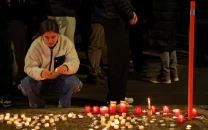
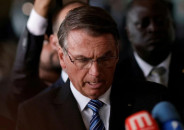
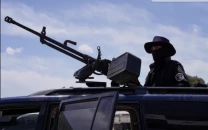
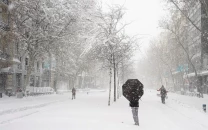
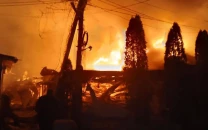
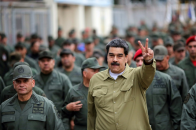


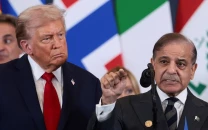
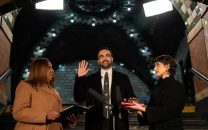

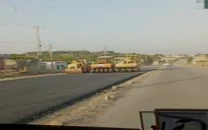






COMMENTS
Comments are moderated and generally will be posted if they are on-topic and not abusive.
For more information, please see our Comments FAQ